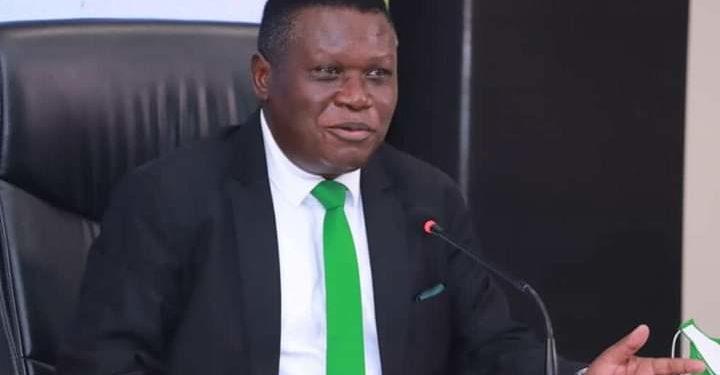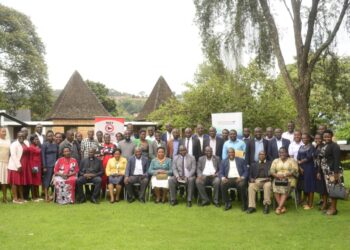In a compelling reaffirmation of the need for unity and healing, the Minister of Justice and Constitutional Affairs, Norbert Mao, has once again sounded the clarion call for reconciliation in Uganda.
He emphasized the collective pain and division that currently grip the nation and the imperative of addressing these issues.
Mao’s impassioned plea came to the forefront during a special parliamentary session convened to pay tribute to the late former Minister, Henry Kisajja Magumba Kyemba. As the president of the Democratic Party, Mao expressed his deep concern for the festering wounds and the pressing need for reconciliation to mend the scars afflicting Uganda as a nation.
In his address, Mao recognized the urgent requirement for healing and reconciliation to bridge the divides within our society. Given his role as the custodian of justice in the nation, his sentiments carry significant weight, resonating with countless individuals yearning for a harmonious and united country.
Mao underscored the gravity of the situation, acknowledging that the wounds that afflict the nation have persisted for far too long. He called upon Members of Parliament to put aside their differences and grievances in order to embark on a collective journey towards reconciliation.
Recognizing the multifaceted nature of the challenges facing the nation, he emphasized that reconciliation is not a sign of weakness but a powerful demonstration of the strength and resilience of a united people.
“In the spirit of looking beyond the horizons of our country, our nation is hurting, and reconciliation is the path we must tread. It is not merely reconciliation between individuals, but reconciliation between the fundamental building blocks that make up Uganda. When one is lost, one returns to the familiar place, and for our lost country, the constitution serves as that familiar point. It is the bedrock upon which we rebuild ourselves,” he remarked.
Mao urged legislators to refrain from labelling individuals as “Mr. Scandal” or “no scandal” because the entire country is in need of redemption. He highlighted the potential for redemption and renewal, drawing parallels with historical figures who underwent transformations and played pivotal roles in their nations.
“I don’t concur with those fixated on the notion of ‘scandal’ or ‘no scandal.’ In this world, there exists a concept called ‘redemption.’ Even Peter, the foundational figure of the church, faced moments of scandal when he denied Jesus. Likewise, Paul, whose teachings we draw from daily in the Bible, was not free from scandals. Hence, we must understand that nations are founded on the commitment to rejuvenate. Just as a nation can undergo a process of renewal, so can every institution within it. Remarkably, it’s often those individuals branded as ‘Mr.’ or ‘Mrs. Scandal’ who can contribute to transformative change. How did D. Clerk, the leader of the Apartheid era, ultimately find common ground with Mandela? Similarly, how did Moi become instrumental in crafting Kenya’s new constitution? Consequently, we should not lose hope, for renewal is indeed possible,” he passionately emphasized.
He cautioned legislators against romanticizing past regimes that left a dark imprint on Uganda’s history, regimes responsible for displacing countless families and causing immeasurable suffering. Mao emphasized that glorifying such regimes impedes the reconciliation process and endangers the nation’s future.
“There is a danger in our nation of romanticizing a past that some never experienced. We attended primary schools that were closed so that students could witness firing squads. My dear colleagues, Mr. Speaker, let us avoid pitting the past against the present, for such a conflict will endanger our future. The road ahead is promising, and Uganda can undergo a revitalization! When you encounter individuals glorifying Idi Amin as a potential alternative to the current regime, this notion is simply unthinkable. Regardless of your views on the present president, it is essential not to draw comparisons with those dark days. We must also refrain from stigmatizing the community from which Idi Amin hailed and instead, we should base our judgments on the principle of individual responsibility for individual actions. Every tribe produces both virtuous and flawed individuals,” he asserted.
The minister’s call for reconciliation signifies a deep desire to heal the nation’s wounds and pave the way towards a brighter and more united future.
Do you have a story in your community or an opinion to share with us: Email us at editorial@watchdoguganda.com













